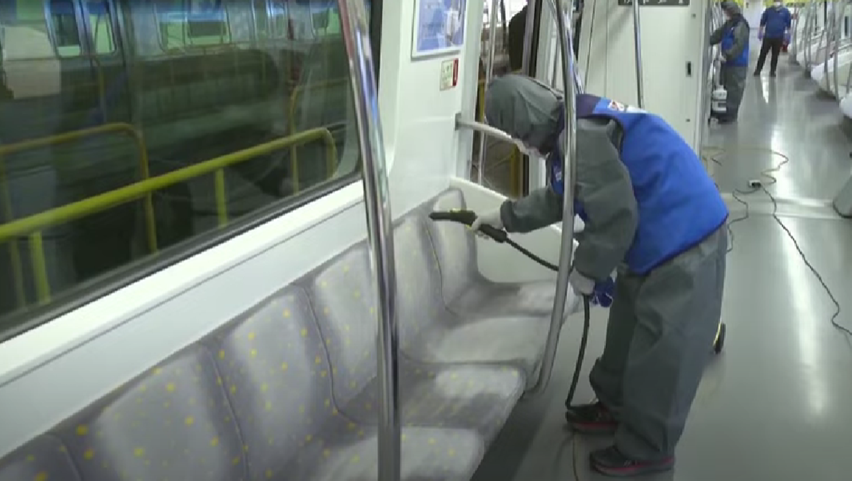In an unexpected turn of events, South Korea has found itself in the midst of a bedbug crisis, with outbreaks reported across various public spaces, prompting the government to launch a four-week campaign aimed at eradicating these bloodsucking pests.
The country, which had been relatively bedbug-free in recent years, is now grappling with thirty suspected or confirmed infestations since the end of October. This resurgence follows similar outbreaks in France and the United Kingdom, as well as an increase in cases in the United States. The sudden surge in bedbug incidents has left the public alarmed, with social media flooded with pictures and personal accounts of encounters with these unwelcome pests.
Pest control firms are overwhelmed with requests for assistance, and concerned citizens are turning to dedicated online platforms to share tips on dealing with bedbugs. The range of suggestions includes avoiding public spaces like cinemas and standing on public transport. The public’s fear and confusion are evident in online discussions, with questions ranging from whether to discard electronics if bedbugs are spotted to using double-sided tape around mattresses as a preventive measure.
The South Korean government, recognizing the severity of the situation, has expedited the import of new pesticides, fearing that the currently available ones may not be strong enough to combat the infestations. Officials are collaborating with private pest control companies to gain a comprehensive understanding of the situation, acknowledging that individuals may be hesitant to report cases directly to authorities due to concerns about stigmatization.
In response to the crisis, the capital city, Seoul, is launching a “Bedbug Reporting and Management System” and a “Zero Bedbugs City, Seoul” initiative. These efforts include inspecting lodging facilities, bathhouses, and saunas, with a particular focus on areas with high concentrations of accommodation and bathhouses popular among foreign residents.
The government is also extending pest control support to small housing units and high-risk areas such as subways and cinemas. The campaign involves periodic steam-cleaning of subway seats to minimize the risk of infestations in public spaces.
Experts believe that the bedbug outbreak may worsen before it gets better, citing the public’s fear of being stigmatized if bitten as a contributing factor. While bedbugs do not spread diseases, their bites can cause discomfort, loss of sleep, and even secondary skin infections.
The Seoul City Government, in its “Bedbug Prevention and Response Guidelines,” advises citizens to be proactive in preventing infestations by avoiding items with a risk of infestation, such as used furniture and old books. Repairing damaged areas in homes, such as cracks and wallpaper, is also recommended to minimize potential bedbug habitats.
As South Korea battles this unexpected bedbug resurgence, the public is urged to take early and proactive measures to prevent these pests from invading their homes, emphasizing that prevention is crucial in the fight against these bloodsucking nuisances.
(Source: Yoonjung Seo | Yang Nam-kyung | CNN)









